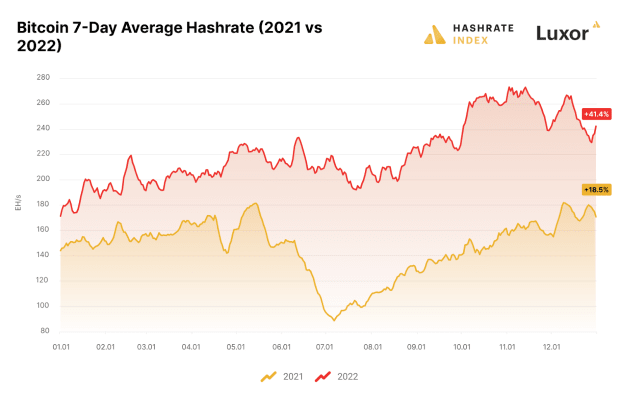Why Decentralization Is Uniquely American
Liberty is an ideal inherent to the founding of America, and this is reflected in Bitcoin.
Hello everyone,
First of all, I appreciate Joe Rogers, and the Bitcoin Magazine team giving me a chance to contribute, even though I am a total newbie to Bitcoin. I am a passionate student of history, so my interest in Bitcoin started because of my political philosophy and my natural bent against relying on centralized government systems to the best of my ability.
Joe shared an article, “The Political Theology of Bitcoin,” which was very interesting to me, as it blended some of the political theory I have read and other sources I have not. The author quoted Thomas Hobbes, whom the founding fathers and I have studied, from his seminal book Leviathan: “Auctoritas, non veritas, facit legem (authority, not truth, makes legitimacy).” In 1927, Mao said, “Political power grows out of the barrel of a gun,” and in the very next breath, “Our principle is that the Party commands the gun, and the gun must never be allowed to command the Party.” Both of these statements highlight the basic historical fact that “might makes right,” whether by means of arms, financial control, or other centralized power structures.
Americans’ views that decentralization and self-reliance are essential values began as Western Europe started to colonize North America. A consistent theme was the colonists’ reliance on various manufactured goods they needed from the old world, so they shipped raw natural resources back to Europe and got the needed items back at a premium. Over the years, the frontier spirit continued to persevere, and communities became more self-reliant and decentralized as the means of production in communities expanded. The natural bartering of goods and services enhanced their communities. The colonies continued to expand, gaining representative government along with industry and increased self-reliance.
The American Revolution was not a fly-by-night movement. Depending on the interpretation, there was at least a 20-year buildup before the “shot heard around the world” on Lexington Green on April 18, 1775, which was fired as the British military marched in an attempt to preemptively seize private arms and supplies. One of the seminal moments in the lead-up to the Declaration of Independence was the Stamp Act, which the British Parliament passed in 1765; it directly taxed all legal documents, paper, and other centralized means of licensing and communication. Further restrictions on various manufactured goods continued, and the colonies improved their supply chains.
Humans are inherently imperfect, and I am biased, but I contend that the Declaration of Independence and United States Constitution are the best founding documents that humanity has written and enacted thus far. They were not perfect and have been supplemented over the years. One part of the constitution that has been overlooked and commonly abused is the 10th Amendment, which reads:
“The powers not delegated to the United States by the Constitution, nor prohibited by it to the states, are reserved to the states respectively, or to the people.”
This is the conclusion to the rather short Bill of Rights, and it is a shining example of how important the theory and practice of decentralization was seen to be.
As America continued to expand, self-sufficiency and decentralized means of production continued to be important, and indeed, they have been central to our growth and continued success. As the years have passed, power has become centralized in both government and industry. The effects of this were starkly on display through 2020 and will continue to reverberate for years to come. The weakness that results from our heavy reliance on critical goods from global sources, particularly from China, the arbitrary and—in my opinion—unconstitutional power seizure by central government agencies, tyrannical orders by governors, and unchecked market manipulation by the Federal Reserve have contributed to a larger awakening of the need to return to our roots and reclaim those natural rights.
“Hard times create strong men. Strong men create good times. Good times create weak men. And, weak men create hard times.” ― G. Michael Hopf, Those Who Remain
Some had seen hard times coming prior to the pandemic, made adjustments in their lives, and sought to decentralize their dependence. This could take many forms, such as buying more locally sourced food; participating in the Twitter #betonmainstreet campaign, which encourages people to pay cash at local businesses; or exercising more caution regarding where purchased products are made. Another real-world effect of this desire for decentralization and lack of trust in “the system” has been the flood of new users to Bitcoin and the use of bitcoin to pay for goods and services.
While I have always preferred using cash or barter, the reality is that there needs to be a digital payment option for doing business in today’s world. I was finally pushed past my Luddite thinking about Bitcoin when I finally started to learn about its possibilities, specifically the solutions that continue to be added and will function as a complete financial suite, including the ultimate goal of a circular ecosystem. I have much more to learn about Bitcoin, and this young Luddite is looking forward to your help in catching up as we all work in our own ways to reclaim our natural rights and put the government back into its proper, limited, and enumerated role of governing with the consent of the governed.
This is a guest post by Trevor Zantos. Opinions expressed are entirely their own and do not necessarily reflect those of BTC Inc. or Bitcoin Magazine.









